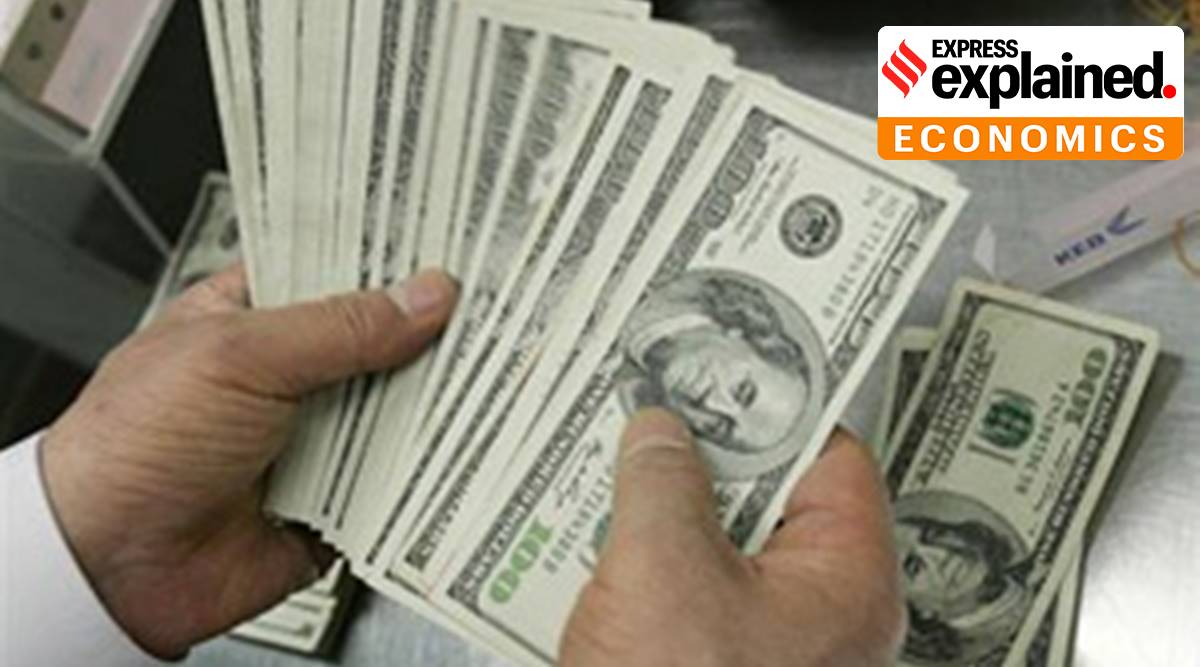In the intricate tapestry of international finance, foreign exchange reserves play a pivotal role. These reserves consist of assets denominated in foreign currencies held by central banks and monetary authorities. They serve as a buffer against external shocks, facilitate international trade, and maintain exchange rate stability. India, the world’s sixth-largest economy, has amassed substantial forex reserves, which have emerged as a cornerstone of the country’s financial stability.

Image: www.zeebiz.com
The history of India’s forex reserves dates back to the aftermath of its independence in 1947. The nascent nation inherited a meager $185 million in reserves, a testament to its economic vulnerability. Over the years, India has diligently managed its forex reserves, prudently accumulating these assets through a combination of trade surpluses, foreign direct investment inflows, and other sources. As of August 2022, India’s forex reserves stood at an impressive $572.75 billion, providing ample cover for around 9 months of imports.
The strength of India’s forex reserves translates into several tangible benefits for the nation and its economy. Firstly, these reserves provide a safety net against external economic shocks. Unanticipated events like geopolitical tensions, global financial crises, or natural disasters can trigger capital outflows and currency depreciation. In such scenarios, forex reserves serve as a buffer to protect the domestic economy from excessive volatility and external shocks.
Secondly, forex reserves enable the Reserve Bank of India (RBI), the country’s central bank, to intervene in the foreign exchange market to maintain exchange rate stability. When there is a surplus of foreign currency in the market, the RBI can purchase excess dollars to prevent the Indian rupee from appreciating too rapidly, thereby protecting exporters and boosting domestic competitiveness. Conversely, if there is a shortage of foreign currency, the RBI can sell dollars from its reserves to stabilize the rupee and prevent excessive depreciation.
Thirdly, forex reserves play a crucial role in facilitating international trade. As a major global importer, India has ongoing needs for a wide range of goods and services, including energy, commodities, and capital goods. Forex reserves provide the financial liquidity necessary to settle these international transactions smoothly and efficiently.
Moreover, the robust level of India’s forex reserves inspires confidence among foreign investors. It signals the country’s ability to meet its international financial obligations and ensures the convertibility of the Indian rupee into foreign currencies. This confidence encourages foreign capital inflows, which are essential for economic growth and development.
In recent years, the management of India’s forex reserves has become increasingly proactive. The RBI has been diversifying the composition of its reserves, moving away from traditional safe havens like the US dollar and towards other major currencies like the Euro, the British Pound, and the Japanese Yen. This diversification reduces the concentration risk associated with holding a large amount of reserves in a single currency.
In addition, the RBI has been actively investing a portion of its forex reserves in yield-generating assets, such as foreign bonds and securities. This strategy aims to maximize the return on the reserves while also maintaining their liquidity. The judicious investment of forex reserves is a key aspect of modern central bank management, and India has been at the forefront of adopting best practices in this regard.

Image: indianexpress.com
Forex Reserves India Trading Economics
Conclusion
India’s substantial forex reserves stand as a testament to the country’s sound economic management and prudent financial policies. These reserves provide a robust shield against external shocks, facilitate international trade, maintain exchange rate stability, and bolster confidence among foreign investors. As the global economic landscape continues to evolve, India’s forex reserves will remain a vital asset, ensuring the stability and prosperity of the Indian economy.






